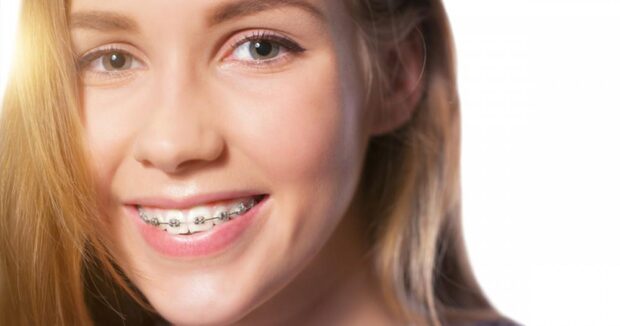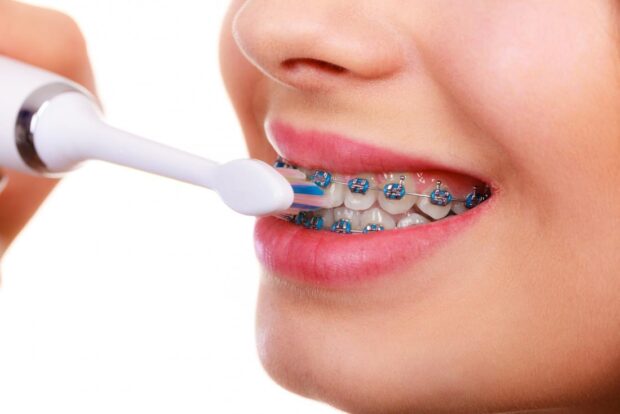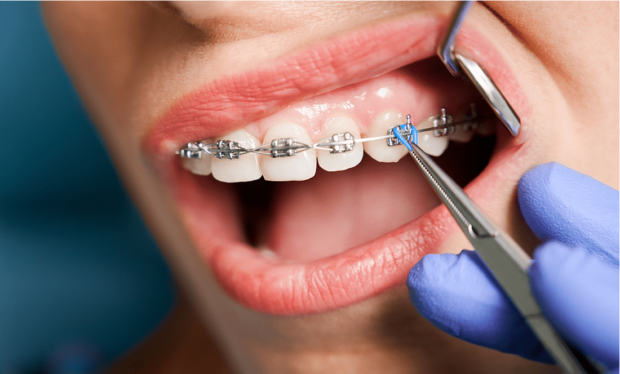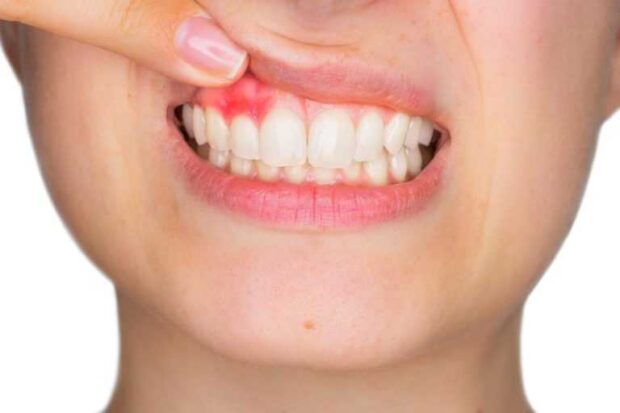If you are one of the many persons considering braces, you may wonder what benefits they offer. Braces have many benefits for dental health, which is why they are such a popular choice. Below are five ways that braces can help to improve dental health. Keep reading to learn more!
1. They Help to Align the Teeth

Clear braces are an effective way of improving dental health and the teeth’s alignment. These devices are constructed from metal, ceramic, or plastic materials and use either a bracket system or removable aligners to shift the teeth into a better position gradually.
Braces do more than help to improve one’s appearance; they also make brushing and flossing easier, as well as help to prevent cavities, gum disease, and other dental problems by properly aligning the teeth. For permanent, unobtrusive braces that work in harmony with your smile and lifestyle, Invisalign is an increasingly popular choice that uses clear plastic trays to move the teeth into proper alignment over time painlessly.
To take full advantage of the many benefits braces provide, it is essential to explore what types of orthodontic treatment can best address your unique oral health needs with a professional dentist’s assistance.
2. They Help to Improve Oral Hygiene

Another benefit of braces is that they can greatly improve oral hygiene. Braces provide extra surface area for plaque and food particles to get stuck in, which means that if you brush and floss your teeth properly (and preferably with the help of a water flosser), you can clean the surfaces your braces are attached to more thoroughly.
When you’re wearing braces, it’s even more important to visit your dentist regularly, as they will be able to monitor the health of your teeth and gums as well as any orthodontic progress made while in braces. Improved oral hygiene not only has obvious benefits like less bad breath and fewer cavities, but it also helps overall dental health improve over time.
3. They Help to Reduce the Risk of Injury

Braces not only improve dental health and reduce the risk of cavities but can also help guard against the risk of injury. By correcting misaligned teeth and changing the posture of your jaws, braces ensure that the mouth and cheeks remain fully supported when biting or chewing on hard objects, making it less likely to sustain an injury.
Furthermore, because braces keep uneven pressure off one tooth in particular, patients are at a lower risk of experiencing fractures in their teeth due to incorrect dental alignment. When used steps are taken to maintain dental hygiene while wearing braces, a patient’s overall dental health can improve significantly over time.
4. They Can Help to Correct an Overbite or Underbite
They can be a great tool in helping to improve dental health because they can help to correct an overbite or underbite. When the upper and lower teeth don’t line up correctly, the result is often an uncomfortable bite and misalignment of the jawbone and other features of the face.
Braces work by slowly repositioning the teeth into a more comfortable and healthier arrangement. Over time, this can lead to better dental hygiene due to easier access to areas that are more commonly difficult to reach when your teeth are not properly aligned.
5. They Can Help to Prevent Gum Disease
They can significantly impact dental health, and one particularly beneficial effect is that they can help prevent gum disease. When teeth are misaligned, it makes them more difficult to clean and leaves bacteria-ridden food particles between them, which can lead to periodontal issues. Braces help to push the teeth into better alignment, allowing for easier cleaning and reducing the chances of developing gum disease.
Additionally, braces make it easier for dentists to spot any irregularities during checkups before they have the chance to cause any long-term damage. Every patient’s teeth will benefit from regular cleaning and orthodontic care; when used together, these methods can keep gums healthy for a lifetime.
Conclusion
If you need braces for yourself or your child, know that they can do more than improve the appearance of your smile. Braces help realign teeth and jaws, resulting in fewer cavities, less gum disease, and better dental health. If you have any questions about how braces work or whether or not they are right for you, be sure to ask your orthodontist during your next appointment.





